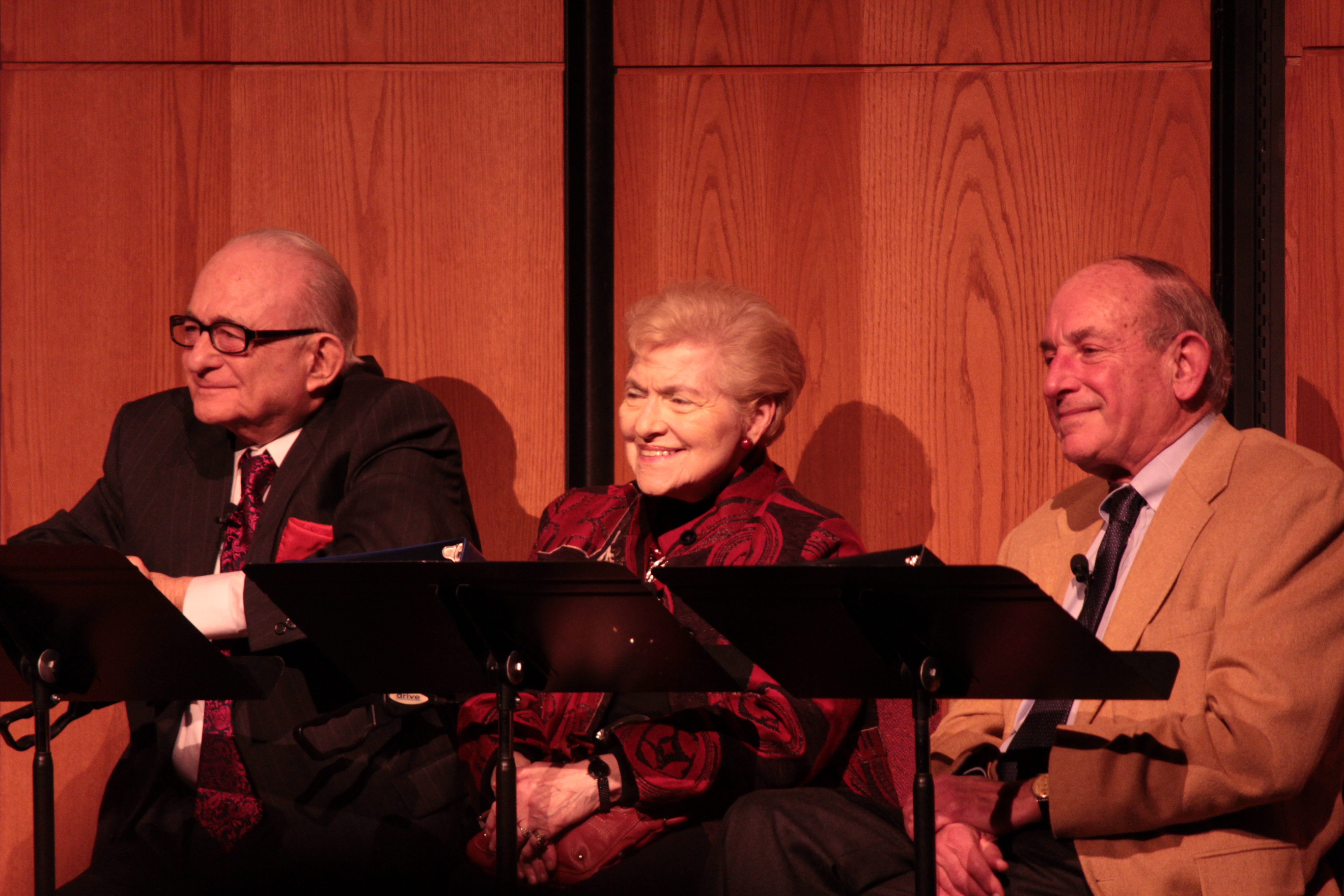Jewish Community Center celebrates founding of Centerstage
Life in Baltimore was decidedly different in 1963. Class, gender and ethnic lines were clearly drawn, and few ever traveled outside their own social circle. Surely some must have thought the idea of launching a professional theater company and basing it at a Jewish Community Center was meshugganah. What would they do about Friday night shows and Saturday matinees?
Undeterred, a group of arts patrons and artists, many of them members of the JCC, forged ahead and formed a theater company. Fifty years later that company – Centerstage – sits at the forefront of the regional theater movement.

To celebrate this milestone, the Jewish Community Center of Greater Baltimore hosted an event last Monday night at The Gordon Center for Performing Arts in Owings Mills. Billed as The Decade Plays, the event paid homage to not only the visionaries who started Centerstage but also to the many caring hands who have helped the company endure. A cocktail reception for donors and honored guests was followed by an evening of historical reminiscences, punctuated by readings of selected scenes from five iconic plays.
Sharing the history of Centerstage were three longtime board members. Dr. Murray Kappelman has been on the board since 1964. Betty Sweren, who was on the staff when the company was formed in 1963, became a board member shortly thereafter. Ronald Wilner has been a board member and advocate for the theater for many years. Wilner is husband to Sydney Wilner, who has run the annual Centerstage radio auction for 30 years.
The history of the company is certainly one of trials and perseverance. After its beginnings at the Park Heights Avenue location of the JCC, the company moved to the West Preston Street site, which is now the home of the Theater Project. Audiences there had to climb a steep staircase to reach the 240 seat auditorium. Then (as now) facilities for the actors were maddening at best.
By1965, Centerstage had outgrown the Preston Street location and moved to a 300-seat theater on North Avenue. The company prospered there until the night of Jan. 10, 1974 when, shortly after bringing down the curtain on an opening performance of Edward Albee’s Who’s Afraid of Virginia Woolf? a fire was reported at the theater. The six-alarm blaze was devastating and when the smoke had cleared, it was apparent the building was damaged beyond repair.

To the amazement of the theater-going public, the curtain ascended the following evening just north of the decimated theater at the Baltimore Museum of Art’s auditorium. A determined cast, moving about a novel, makeshift set, ensured that the run of Who’s Afraid of Virginia Woolf? would continue without missing a single performance.
In the months that followed, thanks to an outpouring of philanthropic support, the enthusiastic backing of civic leaders and the generosity of the Jesuits, the displaced company was able to acquire and renovate the historic former Loyola College building on North Calvert Street. Construction was completed in time for the 1975–76 season. Subsequent improvements to the facility only have added to the allure of Centerstage.
Beyond the various venues which have borne its name, Centerstage has made a lasting impact on a community which has changed a great deal since 1963. Its first production, La Ronde, satirized sexual mores and class warfare. A few short years later, a production of Who’s Got His Own was the company’s first show written by an African-American playwright and featuring an entirely African-American cast. And much to the delight of the playwright Arthur Miller, Centerstage also produced the first professional African-American production of Death of a Salesman.
The history was fascinating, but the plays were the real stars of the night. As the name The Decade Plays suggests, each of the five plays chosen represented a decade in the life of Centerstage. The plays were Tennessee Williams’ always moving Glass Menagerie, Lanford Wilson’s hilarious and heartwarming Hot L Baltimore, Eric Overmyer’s On the Verge, August Wilson’s compelling Jitney, and Lynn Nottage’s thoughtful and touching Intimate Apparel.
The talented group of actors enlisted for the readings were Jimi Kinstle, David Mitchell, Jon Hudson Odom, Susan Rome, Kristina Szilagyi and Myxolydia Tyler. The entire cast excelled in making the most of the abbreviated scenes. Tyler, it should be added, is also exciting crowds with her performance in Centerstage’s current production of The Mountaintop.
A dessert and coffee reception followed the performance.
Centerstage has come a long way from its intrepid beginning in 1963. And it all started with a performance at the Park Heights Avenue JCC.
Who knew?
(Feature photo: The readers were, left to right, Dr. Murray Kappelman, Betty Sweren, and Ronald Wilner. Courtesy photo from CENTERSTAGE)

Anthony C. Hayes is an actor, author, raconteur, rapscallion and bon vivant. A one-time newsboy for the Evening Sun and professional presence at the Washington Herald, Tony’s poetry, photography, humor, and prose have also been featured in Smile, Hon, You’re in Baltimore!, Destination Maryland, Magic Octopus Magazine, Los Angeles Post-Examiner, Voice of Baltimore, SmartCEO, Alvarez Fiction, and Tales of Blood and Roses. If you notice that his work has been purloined, please let him know. As the Good Book says, “Thou shalt not steal.”

